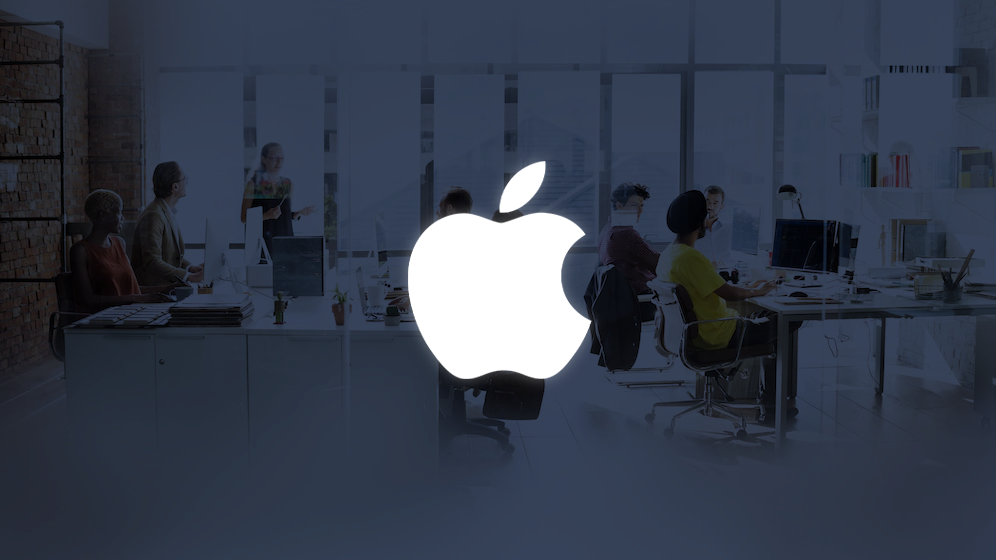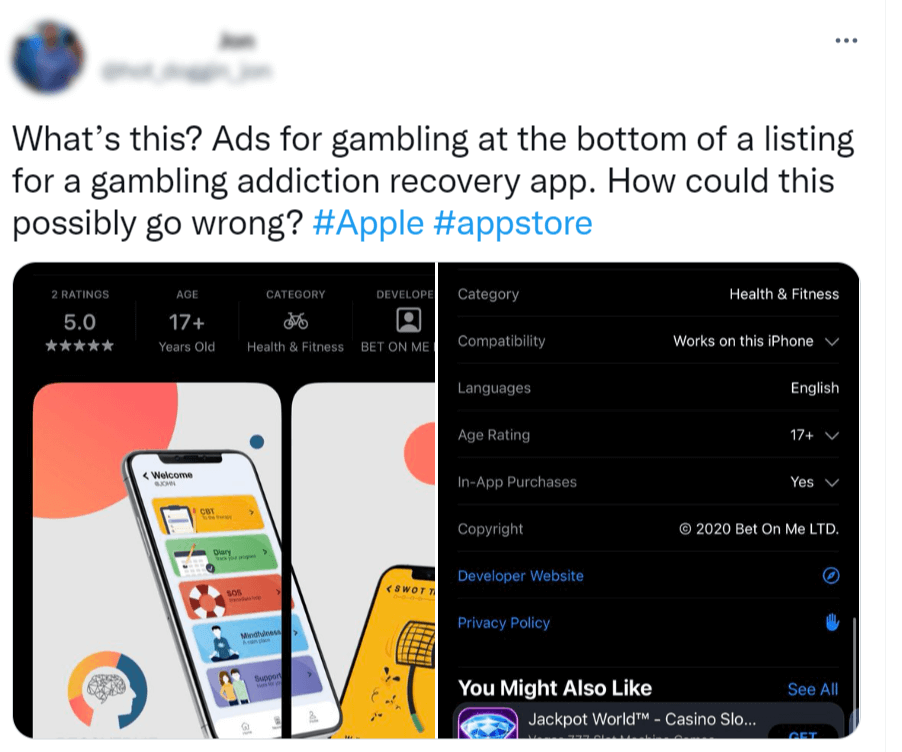Apple’s New Ad Placements Immediately Caused Brand Safety Crisis
PUBLISH DATE: 02 November 2022
Apple recently unveiled new ad placements in the App Store as a part of its goal to expand revenues. However, the new ad space created controversy immediately after it came into effect. Gambling ads rapidly took over slots, in some cases appearing under apps designed to help overcome gambling addiction. The influx of gambling ads led to an outcry from developers, who didn’t want to be associated with such services and asked Apple to indefinitely pause ads in the gambling category.

How did this happen? Since the implementation of AppTrackingTransparency, Apple has been keen to expand its ad revenues. So far, these efforts have been much more focused on the App Store.
- Apple is expected to gain around $4 billion in ad revenues in 2022, but as per reports by Bloomberg, it’s looking to expand those revenues into “the double digits”. In order to do that, it launched a bevy of new ad placements.
- One of the primary target is the App Store, as its search ads are a major driver of revenue. Apple has been spending the year opening more ad slots on the store’s home page, search tab, and even at the bottom of an app’s download page under a ‘You may also like’ category. This means that you might see an ad for Facebook on the Twitter’s page.
- Apple is also going to bring ads to Apple Maps, Books, and Podcasts, and exploring launching ads on Apple TV+.
So, where did it go wrong? Beginning from its tech products to its interfaces, Apple has a history to taking pride on user experience above all its new inventions. But if it wants a slice of the ad pie, it’s going to come at a price of its brand reputation.
- Consumers don’t like ads – period. Which is why there’s concern about Netflix launching ads, about Google serving pages full of promoted results, and about ads coming to free-to-play video games.
- There are not only consumers, Apple also has developers and brands to contend with. For one of Apple’s first ad ventures to immediately end up this way doesn’t speak highly of brand safety on its platform.
- It will be really hard for Developers who are already angry about shovelling over an aggressive 30% of in-app purchase to Apple. This makes them even more resentful as they can’t control what’s promoted on their download pages.
- Clearly, there is no excuse for this. Even if wasn’t Apple’s first foray into ads, it should have been ready for such a situation. Plenty of platforms already have come across such an issue where there ads are running where they don’t belong, and increasing ad load always boosts the risk of such incidents.
Conclusion
The gambling example speaks to Apple’s lac of experience in not only managing ad but in also providing a brand safe environment. As Apple tries to claim more ad revenues, both the user and advertiser experiences will decline – the same which can be said for any platform that is trying to dramatically increase its ad load.







